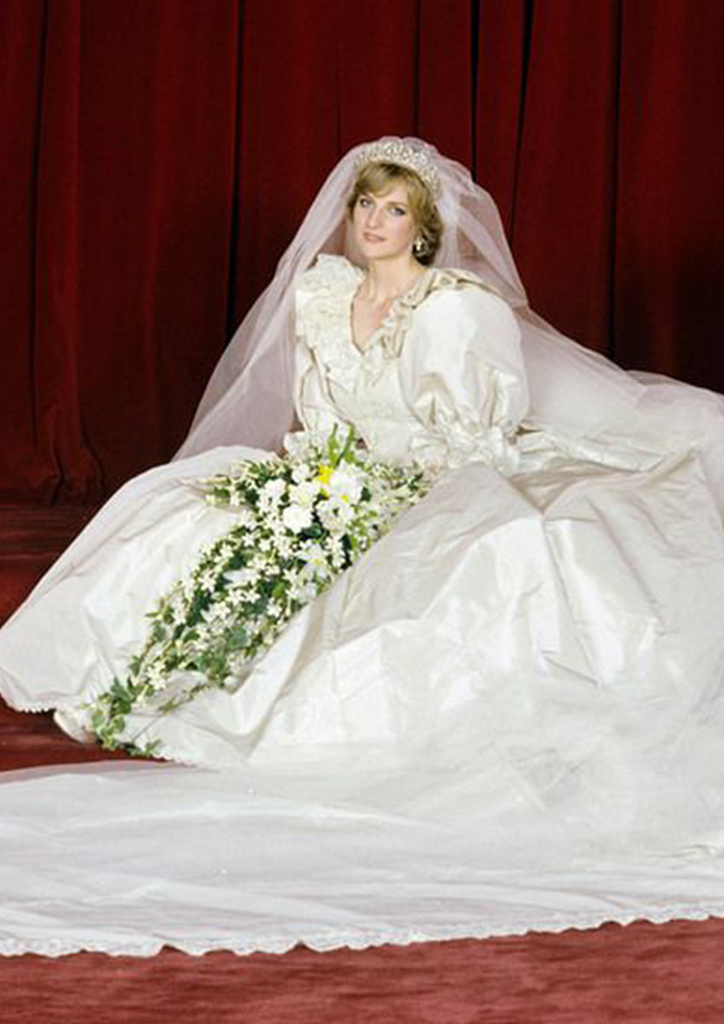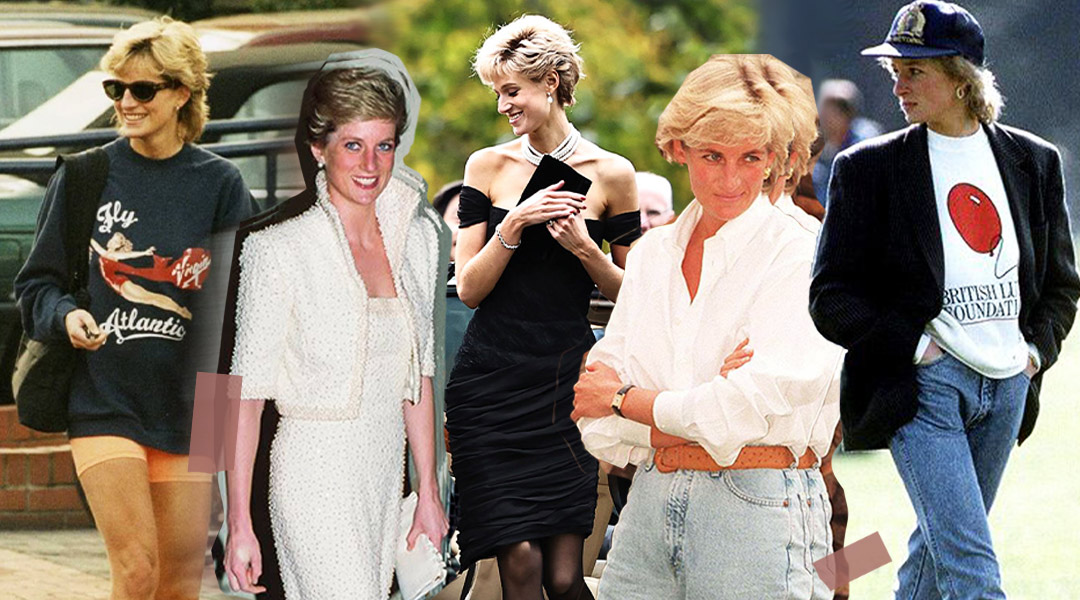Princess Diana's wedding to Prince Charles on July 29, 1981, remains one of the most memorable royal events in history. The ceremony captured the hearts of millions around the world, with its blend of tradition, grandeur, and the timeless elegance of Diana herself. Her wedding not only marked a significant moment in royal history but also redefined wedding fashion, leaving an indelible mark on bridal style for generations to come.
The wedding, often dubbed the "wedding of the century," was a televised spectacle watched by an estimated 750 million people globally. The grandeur of the event, coupled with the fairytale romance of Diana and Charles, created a sense of magic and wonder that captivated audiences worldwide. From the majestic setting of St. Paul's Cathedral to the intricate details of the ceremony, every aspect was meticulously planned to perfection.
Beyond the pomp and pageantry, Princess Diana's wedding was a reflection of her personal style and grace. Her iconic wedding dress, designed by David and Elizabeth Emanuel, featured a 25-foot train and a distinctive silk taffeta and lace construction that set new standards in bridal fashion. The dress symbolized Diana's unique blend of classic elegance and modern sophistication, cementing her status as a fashion icon. Let's delve into the details of this momentous occasion and explore why Princess Diana's wedding continues to be celebrated as a timeless celebration of iconic style.
Read also:A Wealthy Spotlight Judge Mathis Net Worth And His Esteemed Tv Persona
Table of Contents
- Biography of Princess Diana
- What Were Princess Diana's Early Life and Background?
- Personal Details and Biodata
- How Did the Courtship of Diana and Charles Unfold?
- The Engagement Announcement and Preparations
- The Royal Wedding Day: A Detailed Account
- Princess Diana's Iconic Wedding Dress
- The Ceremony at St. Paul's Cathedral
- Reception and Celebrations: A Royal Affair
- The Wedding's Global Impact and Media Coverage
- How Did the Wedding Influence Fashion Trends?
- Princess Diana's Wedding Legacy
- Frequently Asked Questions
- Conclusion
Biography of Princess Diana
Princess Diana, born Diana Frances Spencer, was one of the most beloved figures of the 20th century. Born on July 1, 1961, in Sandringham, Norfolk, Diana was the fourth of five children of John Spencer, Viscount Althorp, and Frances Roche. Her aristocratic heritage and close ties to the British royal family set the stage for her eventual marriage to Prince Charles, the heir apparent to the British throne.
Diana's early life was marked by a blend of privilege and personal challenges. Her parents' divorce when she was just seven years old had a profound impact on her, shaping her empathetic and compassionate nature. Despite these challenges, Diana excelled in various fields, displaying a keen interest in music, dance, and social work.
Personal Details and Biodata
| Full Name | Diana Frances Spencer |
|---|---|
| Date of Birth | July 1, 1961 |
| Place of Birth | Sandringham, Norfolk, England |
| Parents | John Spencer, Viscount Althorp, and Frances Roche |
| Marriage | Prince Charles, July 29, 1981 |
| Children | Prince William and Prince Harry |
What Were Princess Diana's Early Life and Background?
Princess Diana's childhood was spent on the Sandringham estate, where her family rented a house from Queen Elizabeth II. As part of the British aristocracy, Diana had a privileged upbringing, attending elite schools such as Riddlesworth Hall and West Heath School. Despite her family's wealth, Diana was known for her humility and compassion, traits that would come to define her public persona.
Diana's early education was interrupted by her parents' divorce, which left a lasting impact on her. She later attended the Institut Alpin Videmanette in Switzerland, where she furthered her education and developed a love for skiing and other outdoor activities. Diana's early life experiences played a crucial role in shaping her character and humanitarian instincts, which she would later use in her charitable endeavors.
How Did the Courtship of Diana and Charles Unfold?
The courtship between Diana and Prince Charles was a whirlwind romance that captured the public's imagination. The couple first met in November 1977, when Charles was dating Diana's older sister, Lady Sarah Spencer. Their paths crossed again in the summer of 1980 at a mutual friend's barbecue, where sparks flew between the two.
Charles was immediately taken by Diana's charm and beauty, and their relationship quickly blossomed. They shared a love for the countryside, and Diana's warmth and kindness resonated with Charles. Despite the intense media scrutiny, the couple managed to maintain a sense of privacy during their courtship, with Charles often visiting Diana at her apartment in London.
Read also:Success Story Of Aishwarya Rajeshs Father A Remarkable Journey
The Engagement Announcement and Preparations
The engagement of Diana and Charles was officially announced on February 24, 1981, sending waves of excitement across the globe. The announcement marked the beginning of a new chapter for the British monarchy, with Diana poised to become the future Queen of England.
In preparation for the royal wedding, Diana underwent a transformation, learning the protocols and duties associated with her new role. The couple's engagement was met with widespread approval, with Diana quickly becoming a beloved figure in the eyes of the public.
The Royal Wedding Day: A Detailed Account
The wedding day of Princess Diana and Prince Charles was a spectacle of unparalleled grandeur and elegance. Held at St. Paul's Cathedral in London, the ceremony was attended by 3,500 guests, including heads of state, dignitaries, and celebrities from around the world.
The streets of London were lined with millions of well-wishers, all eager to catch a glimpse of the royal couple. The event was broadcast live to an audience of 750 million viewers across 74 countries, making it one of the most-watched television events in history.
Princess Diana's Iconic Wedding Dress
Princess Diana's wedding dress remains one of the most iconic bridal gowns of all time. Designed by David and Elizabeth Emanuel, the dress featured a stunning 25-foot train, intricate lace detailing, and over 10,000 pearls. The silk taffeta creation was a perfect blend of tradition and modernity, reflecting Diana's unique style and elegance.
The dress was kept a closely guarded secret until the day of the wedding, adding to the anticipation and excitement surrounding the event. Diana's choice of a dramatic and voluminous gown set a new standard in bridal fashion, inspiring countless brides around the world.
The Ceremony at St. Paul's Cathedral
The ceremony at St. Paul's Cathedral was a majestic affair, steeped in tradition and pageantry. The grand setting, with its soaring arches and stunning architecture, provided a fitting backdrop for the royal nuptials.
The ceremony was officiated by the Archbishop of Canterbury and the Dean of St. Paul's, with a full choir and orchestra providing a musical accompaniment. The vows exchanged between Diana and Charles were a poignant moment, symbolizing their commitment to each other and to the British monarchy.
Reception and Celebrations: A Royal Affair
Following the ceremony, a reception was held at Buckingham Palace, where the royal couple celebrated with their family and friends. The reception featured a lavish banquet, with a menu reflecting the finest of British cuisine.
The highlight of the reception was the cutting of the wedding cake, a towering confection that was meticulously crafted by the palace's pastry chefs. The celebrations continued late into the night, with dancing and entertainment adding to the joyous atmosphere.
The Wedding's Global Impact and Media Coverage
Princess Diana's wedding had a profound impact on the world, with its grandeur and romance capturing the imagination of people across the globe. The extensive media coverage of the event helped to cement Diana's status as a global icon, with her image gracing the covers of magazines and newspapers worldwide.
The wedding also had a significant impact on the British monarchy, rejuvenating its public image and strengthening its connection with the people. The union of Diana and Charles was seen as a symbol of hope and renewal, with the young couple embodying the promise of a bright future for the royal family.
How Did the Wedding Influence Fashion Trends?
Princess Diana's wedding set new trends in bridal fashion, with her iconic gown inspiring a generation of brides. The voluminous sleeves, intricate lace, and dramatic train became hallmarks of 1980s wedding fashion, with countless designers emulating Diana's style.
Beyond bridal wear, Diana's fashion choices continued to influence trends throughout her life, with her elegant and sophisticated style earning her a place among the world's most fashionable women. Her wedding marked the beginning of her journey as a fashion icon, with her impact on the industry still felt today.
Princess Diana's Wedding Legacy
The legacy of Princess Diana's wedding extends far beyond the ceremony itself. Her marriage to Prince Charles marked the beginning of a new era for the British monarchy, with Diana's influence reshaping the royal family's role in public life.
Diana's compassion and humanitarian efforts became a defining feature of her legacy, with her commitment to charitable causes endearing her to people around the world. Her wedding remains a symbol of hope and romance, with its timeless elegance and style continuing to inspire brides and fashion enthusiasts alike.
Frequently Asked Questions
- What made Princess Diana's wedding dress so iconic?
- How many people watched the royal wedding?
- What was the significance of St. Paul's Cathedral for the wedding?
- How did Princess Diana's wedding influence bridal fashion?
- What was the impact of the wedding on the British monarchy?
- How did the media coverage of the wedding affect Princess Diana's image?
The dress's 25-foot train, intricate lace detailing, and over 10,000 pearls made it a stunning creation that set new standards in bridal fashion.
Approximately 750 million people watched the wedding live on television across 74 countries.
St. Paul's Cathedral provided a grand and majestic setting for the ceremony, reflecting the grandeur and tradition of the royal occasion.
The wedding set new trends in bridal fashion, with Diana's voluminous sleeves, lace detailing, and dramatic train becoming hallmarks of 1980s wedding style.
The wedding rejuvenated the monarchy's public image, strengthening its connection with the people and symbolizing hope and renewal for the royal family.
The extensive media coverage helped cement Diana's status as a global icon, with her image gracing the covers of magazines and newspapers worldwide.
Conclusion
Princess Diana's wedding to Prince Charles remains a timeless celebration of iconic style, capturing the hearts of millions around the world. The grandeur, romance, and elegance of the event have left an indelible mark on history, inspiring generations of brides and fashion enthusiasts. Diana's legacy continues to endure, with her compassion, grace, and timeless style serving as a beacon of hope and inspiration for people everywhere. As we look back on this momentous occasion, we celebrate the life and legacy of a remarkable woman whose impact on the world will never be forgotten.

